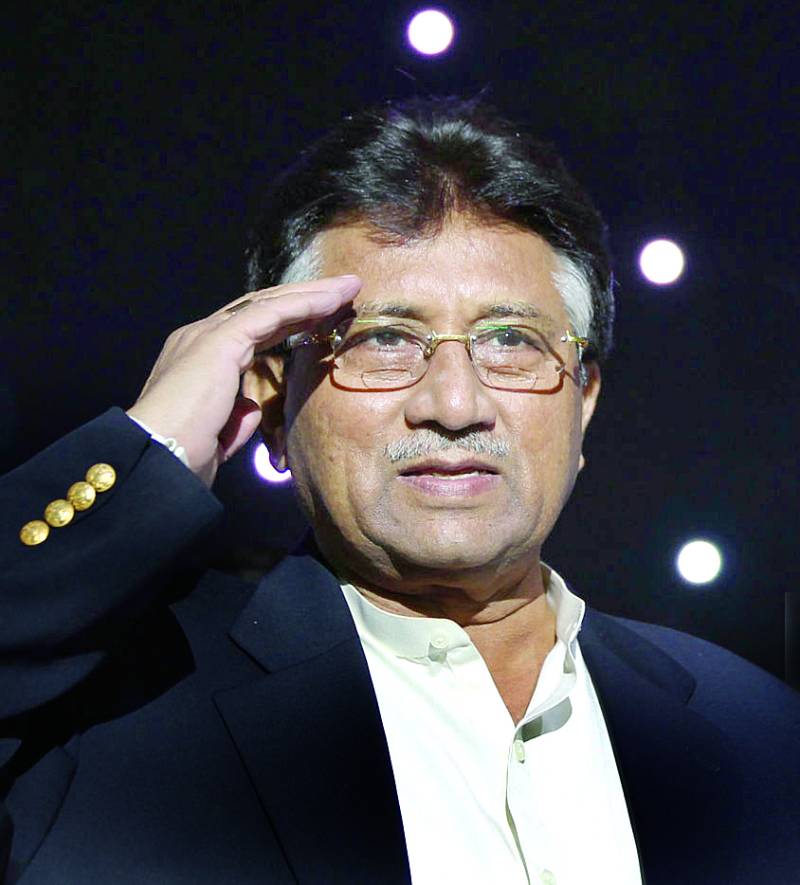LAHORE - A three-member Bench of the Lahore High Court (LHC) on Monday declared as unconstitutional the formation of the Special Court which had heard a high treason case against former military ruler Pervez Musharraf and handed him a death sentence after finding him guilty.
The Bench, headed by Justice Sayyed Mazahar Ali Akbar Naqvi and consisting of Justice Muhammad Ameer Bhatti and Justice Chaudhry Muhammad Masood Jahangir, ruled in its short order that the formation of the Special Court was not made as per the Constitutional and legal requirements.
The three-member also held that the amendments made to Article 6 of the Constitution could not be implemented retrospectively.
The court also set aside Section 9 of the Criminal Law Special Court Amendment Act 1976.
Passing the orders, the Bench allowed the petition filed by Pervez Musharraf against the formation and proceedings of the Special Court in the high treason case initiated during the last tenure of former Prime Minister Nawaz Sharif.
On December 17, 2019, the Special Court in Islamabad convicted Pervez Musharraf for high treason and handed him death penalty on five counts in a 2-1 split decision.
The case was filed by the PML-N government against Musharraf for declaring state of emergency in the country and suspending the Constitution on November 3, 2007.
Musharraf in his petition he filed after the Special Court’s verdict had submitted that the Special Court’s verdict be set aside for being illegal, without jurisdiction and unconstitutional for violating Articles 10-A, 4, 5, 10 and 10-A of the Constitution of Pakistan.
During the yesterday’s proceedings, Additional Attorney General Ishtiaq A Khan concluded his arguments.
The AAG appeared on behalf of the Federal government and presented before the court the summary and record pertaining to the formation of the Special Court, in compliance with the court’s earlier order in this respect.
The AAG informed the court that the matter of the initiation of a case against Musharraf had never been included in the Cabinet agenda.
On the court’s query, the AAG said that the Cabinet meeting under discussion was held on June 24, 2013. He added that the Cabinet met again regarding the appointment of judges for the Special Court.
He clarified that it was true that the formation of the Special Court to hear the high treason case against Pervez Musharraf was made without approval from the Cabinet.
The AAG added that the appointment of one of the Special Court’s judges came under discussion in the Cabinet on May 8, 2018.
On October 21, 2018, Justice Yawar Ali, one of the Special Court’s judge, had retired and the Special Court was again broken, he stated.
The AAG replied in the negative when the court asked if the issue of the process of filing a complaint in the case had come up in Cabinet meetings.
The Bench remarked, “According to your record, there is no agenda or notification pertaining to the formation of the Special Court or the filing of the complaint.”
Discussing if the imposition of the state of emergency amounted to the suspension of the Constitution, Justice Naqvi remarked that the imposition of state of emergency is part of the Constitution.
Justice Naqvi also raised a question where the situation requires that the government imposes an emergency, will a treason case be filed against that government too.
Also Justice Bhatti questioned the state of emergency can be imposed under Article 232 of the Constitution.
The AAG replied that such a move would be as per the Constitution.
On the AAG’s reply, Justice Naqvi remarked, “Then how is it a deviation from the Constitution?” The AAG detailed that the Parliament while passing the 18th Amendment had made the suspension of the Constitution as an offence and included it in Article 6.
The court then asked whether a person could be punished for an offence he committed prior to an amendment is passed in that respect.
The AAG informed the court an offence committed in the past cannot be punished after new legislation.
Through the 18th Amendment, the Parliament had made the amendments in Article 6, and deemed the abrogation, subverting or suspension of the Constitution as an offence of high treason.
Referring to the amendment, Justice Naqvi remarked that by adding three words, the Parliament had changed the whole status of the Constitution.
After examining the proceedings of the trial against Musharraf, the court asked how many members were included in the FIA team which conducted the inquiry against Musharraf.
The court was told that a 20-25 member team was formed to conduct the inquiry.
The court was further informed that only one of the FIA team members appeared before the Special Court for the trial.
The court observed when members who conducted the inquiry did not appear during the trial before the Special Court, “what is the value of an inquiry against Musharraf?.”
After hearing the arguments, the three-member LHC bench ruled in its short order that the formation of the Special Court was not made as per the Constitutional and legal requirements.






